 That preview was a rude wake-up call reminding me that Nami yo Kiite Kure has only one more episode left. I’m heartily glad the production was advanced enough to survive the wave of postponements, but it’s a real shame this flawed but fascinating singularity of a series is ending when it obviously has so much more to say. And this episode was a glorious example of just how iconoclastic and disinterested in conformity this show is. It very much does its own weird thing, as and how it wants to, and lets the chips fall where they may. Frankly, it’s hard to believe it was ever produced in the first place.
That preview was a rude wake-up call reminding me that Nami yo Kiite Kure has only one more episode left. I’m heartily glad the production was advanced enough to survive the wave of postponements, but it’s a real shame this flawed but fascinating singularity of a series is ending when it obviously has so much more to say. And this episode was a glorious example of just how iconoclastic and disinterested in conformity this show is. It very much does its own weird thing, as and how it wants to, and lets the chips fall where they may. Frankly, it’s hard to believe it was ever produced in the first place.
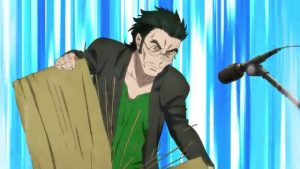 I would have thought a plot centered around the Aokigahara “Suicide Forest” might be a third rail even for late night anime. This is not a subject the Japanese prefer to discuss in the light of day – the national suicide rate is a matter of intense embarrassment and denial. And no name conjures this more than Aokigahara, whose actual status as a hotbed for suicide is probably modern (in contrast to what the legends about it say) but nevertheless has become a mythical symbol synonymous with the issue. While suicide isn’t the theme of this episode (rather, murder is) using Aokigahara as a setting is nevertheless very edgy in a legitimate way, rather than faux-edginess in an attempt to seem cool.
I would have thought a plot centered around the Aokigahara “Suicide Forest” might be a third rail even for late night anime. This is not a subject the Japanese prefer to discuss in the light of day – the national suicide rate is a matter of intense embarrassment and denial. And no name conjures this more than Aokigahara, whose actual status as a hotbed for suicide is probably modern (in contrast to what the legends about it say) but nevertheless has become a mythical symbol synonymous with the issue. While suicide isn’t the theme of this episode (rather, murder is) using Aokigahara as a setting is nevertheless very edgy in a legitimate way, rather than faux-edginess in an attempt to seem cool.
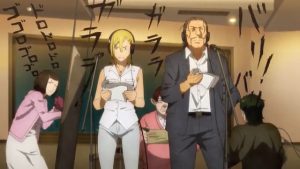 The radio play – by a country mile the most interesting of Nami’s fantasy set pieces – is a heady mix of Python-esque humor and very dark psychological introspection. The Goddess of the forest (in reality the Kami of nearby Mt. Fuji, Asama no Okami) – actually voiced remotely by Chishiro – gives each of the trio a chance to unload their karma before assigning them to be reincarnated (always in Sweden – they have a welfare system there). “Matt” the hitman goes first, and as he’s the only truly fictional character it’s hard to know to what extent Mado-san’s dialogue is him unburdening himself (one hopes not a lot, given the specifics).
The radio play – by a country mile the most interesting of Nami’s fantasy set pieces – is a heady mix of Python-esque humor and very dark psychological introspection. The Goddess of the forest (in reality the Kami of nearby Mt. Fuji, Asama no Okami) – actually voiced remotely by Chishiro – gives each of the trio a chance to unload their karma before assigning them to be reincarnated (always in Sweden – they have a welfare system there). “Matt” the hitman goes first, and as he’s the only truly fictional character it’s hard to know to what extent Mado-san’s dialogue is him unburdening himself (one hopes not a lot, given the specifics).
 Then comes “Mitsuo“, and this is where things start to get really interesting. This is all Kureko-san’s creation (and Koumoto-san’s electronically altered voice), but as Mianre notes, he “nails” Mizuho’s essential nature here. The fact that Kureko can so precisely capture Mizuho’s particular brand of dysfunction based on a few conversations with Minare and one illicit recording of him shows just what a talented writer he is – it’s clear the anime is only giving us the tip of the iceberg with his story.
Then comes “Mitsuo“, and this is where things start to get really interesting. This is all Kureko-san’s creation (and Koumoto-san’s electronically altered voice), but as Mianre notes, he “nails” Mizuho’s essential nature here. The fact that Kureko can so precisely capture Mizuho’s particular brand of dysfunction based on a few conversations with Minare and one illicit recording of him shows just what a talented writer he is – it’s clear the anime is only giving us the tip of the iceberg with his story.
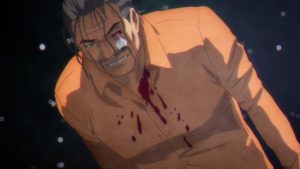 Then it’s Minare’s turn – and is usually the case, the script leaves it to her to ad-lib. Minare exposing her raw wounds is the essence of what her show is all about, and the idea of pushing her to unburden herself of her bad karma on-air is fiendishly clever. She does have self-awareness, clearly – she knows she’s a destructive force and regrets it, but that’s not the same as having the will to actually change. And her first encounter with Nakahara-san after the broadcast bears this out, as she tortures him in much the same way she always does.
Then it’s Minare’s turn – and is usually the case, the script leaves it to her to ad-lib. Minare exposing her raw wounds is the essence of what her show is all about, and the idea of pushing her to unburden herself of her bad karma on-air is fiendishly clever. She does have self-awareness, clearly – she knows she’s a destructive force and regrets it, but that’s not the same as having the will to actually change. And her first encounter with Nakahara-san after the broadcast bears this out, as she tortures him in much the same way she always does.
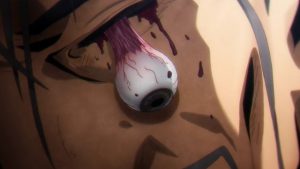 The most fascinating part of all this for me, really, is Mado’s interest in Minare and her career. His own past with Komei Sissei has a lot to do with it (Truck-kun strikes again) – there’s a definite element of wish-fulfilment in this for him. Maybe he has a certain interest in her personally, too – they have a certain soulmate element to their relationship. But fundamentally I think he sees Minare as someone who was made to take advantage of the possibilities of the medium he loves so much – someone whose peculiarities are ideally suited to the intimate and peculiar nature of live radio.
The most fascinating part of all this for me, really, is Mado’s interest in Minare and her career. His own past with Komei Sissei has a lot to do with it (Truck-kun strikes again) – there’s a definite element of wish-fulfilment in this for him. Maybe he has a certain interest in her personally, too – they have a certain soulmate element to their relationship. But fundamentally I think he sees Minare as someone who was made to take advantage of the possibilities of the medium he loves so much – someone whose peculiarities are ideally suited to the intimate and peculiar nature of live radio.


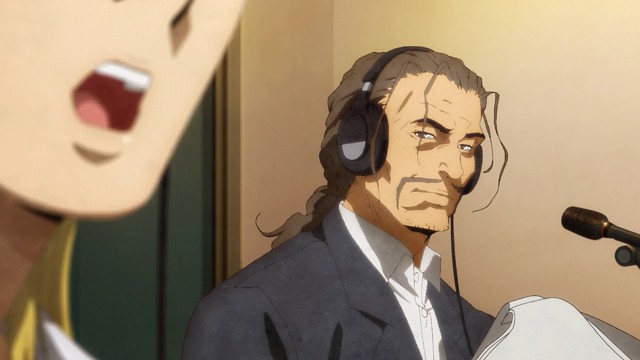
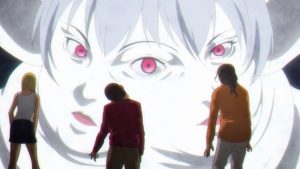



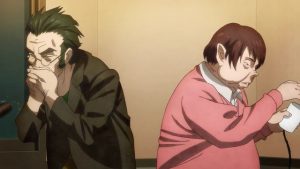
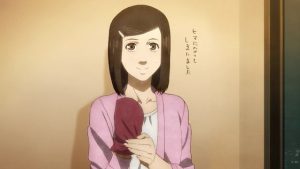
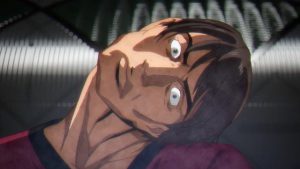




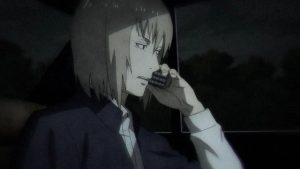


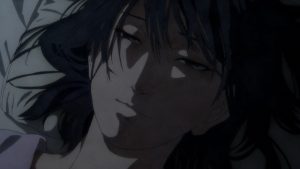






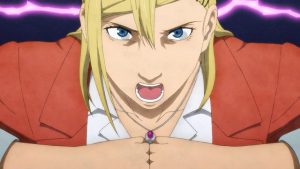
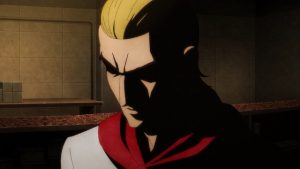
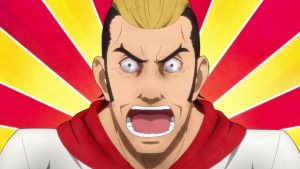




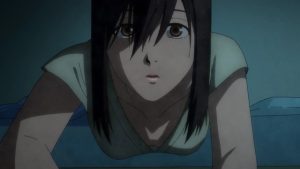
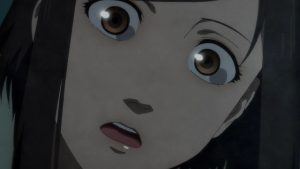
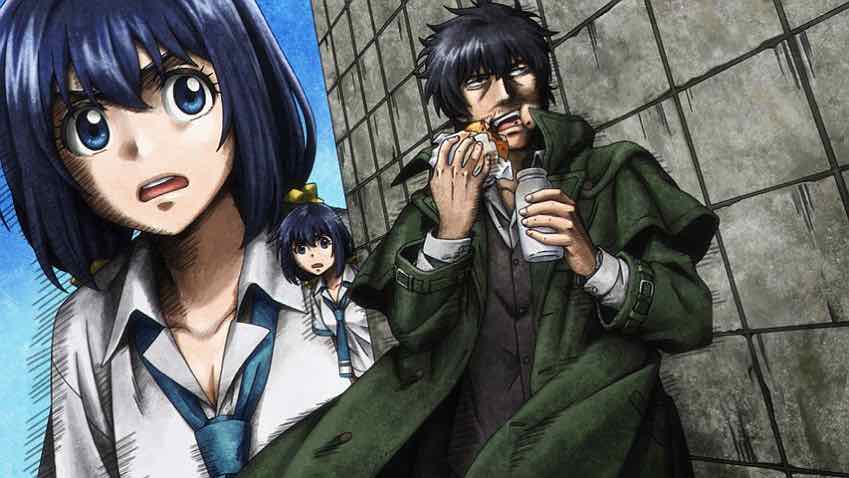

Derrick
June 13, 2020 at 7:16 pmI know it’s her choice, but I can’t help but feeling that Minare decision to join radio is influenced too much by a single person